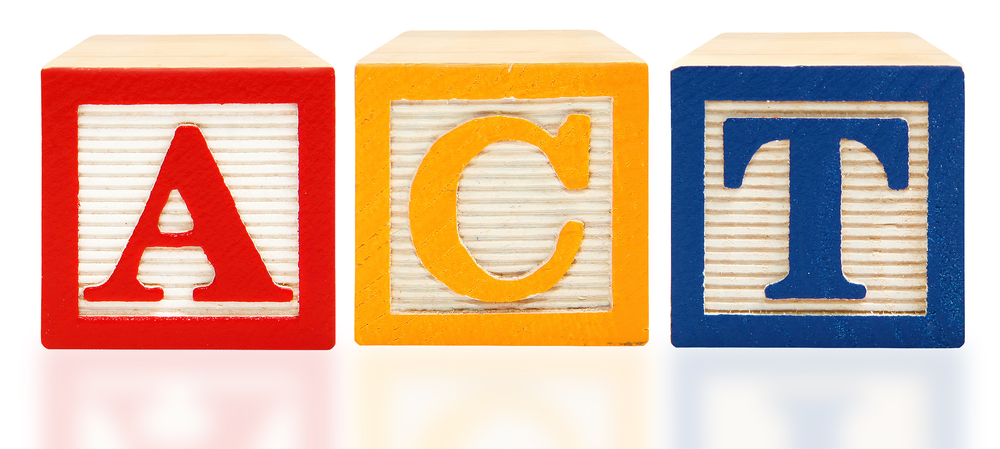
by Erica L. Meltzer | Oct 3, 2015 | Blog, SAT Grammar (Old Test), The New SAT
So I’m in the middle of rewriting the workbook to The Ultimate Guide to SAT Grammar. After the finishing the new SAT grammar and reading books, I somehow thought that this one would be easier to manage. Annoying, yes, but straightforward, mechanical, and requiring nowhere near the same intensity of focus that the grammar and reading books required. Besides, I no longer have 800 pages worth of revisions hanging over me — that alone makes things easier.
However, having managed to get about halfway through, I have to say that I’ve never had so much trouble concentrating on what by this point should be a fairly rote exercise. Even writing three or four questions a day feels like pulling teeth. (So of course I’m procrastinating by posting here.)
In part, this is because I have nothing to build on. With the other two book, I was revising and/or incorporating material I’d already written elsewhere; this one I have to do from scratch. I’m also just plain sick and tired of rewriting material that I already poured so much into the first time around.
The problem goes beyond that, though. (more…)

by Erica L. Meltzer | Sep 27, 2015 | Blog, Issues in Education, The New SAT
Passage 1 is excerpted from a speech about the Common Core State Standards given by David Coleman at the senior leadership meeting at the University of Pittsburgh’s Institute of Learning in 2011. Passage 2 is from Sandra Stotsky’s June 2015 Testimony regarding Common Core, delivered at Bridgewater State University. Stotsky was a member of the Common Core validation committee who, along with R. James Milgram, refused to sign off on the Standards. Student Achievement Partners is a company founded by David Coleman that played a significant role in developing Common Core.
Passage 1
Student Achievement Partners, all you need to know about us are a couple of things. One is that we’re composed of that collection of unqualified people who were involved in developing the common standards. And our only qualification was our attention to and command of the evidence behind them. That is, it was our insistence in the standards process that it was not enough to say you wanted to or thought that kids should know these things, that you had to have evidence to support it, frankly because it was our conviction that the only way to get an eraser into the standards room was with evidence behind it, ‘cause otherwise the way standards are written you get all the adults into the room about what kids should know, and the only way to end the meeting is to include everything. That’s how we’ve gotten to the typical state standards we have today. (Mercedes Schneider, Common Core Dilemma, 2015, p. 2440 Kindle ed.) (more…)

by Erica L. Meltzer | Sep 14, 2015 | Blog, Issues in Education, The New SAT
Carol Burris weighs in on the suggestion that the recent decline in SAT scores is due a more diverse pool of test-takers:
From the Washington Post:
Since 2011, average SAT scores have dropped by 10 points even though the proportion of test takers from the reported economic brackets has stayed the same and the modest uptick in the number of Latino students was partially offset by an increase in Asian American and international students [who have higher than average scores]. And in the year of the biggest drop (7 points), the proportional share of minority students is the same as it was in 2014. (more…)

by Erica L. Meltzer | Aug 20, 2015 | Blog, General Tips, The New SAT, Tutoring
As I’ve mentioned elsewhere on this site, I’m often a tutor of last resort. That is, people find their way to me after they’ve exhausted other test-prep options (self-study, online program, private tutor) and still find themselves short of their goals. Sometimes very, very far short of their goals. When people come to me very late in the process, e.g. late spring of junior year or the summer before senior year, there’s unfortunately a limited amount that I can do. Most of it is triage at that point: finding and focusing on a handful of areas in which improvement is most likely.
Not coincidentally, many of the students in this situation who find their way to me have been cracking their heads against the SAT for months, sometimes even a year or more. Often, they’re strong math and science students whose reading and writing scores lag significantly behind their math scores, even after very substantial amounts of prep and multiple tests. They’re motivated, diligent workers, but the verbal is absolutely killing them. Basically, they’re fabulous candidates for the ACT. (more…)

by Erica L. Meltzer | Aug 19, 2015 | Blog, The New SAT
In case you haven’t seen them, they can be downloaded https://collegereadiness.collegeboard.org/sat/practice/full-length-practice-tests
The basic formula for determining scaled scores is simple enough (count how many you got right, convert to a raw score, and multiple by 10); however, if I hadn’t witnessed some of the College Board’s recent antics, I sincerely would have thought that the subscore charts were some kind of parody.
If want a definition for convoluted (assuming you’re taking the SAT before March 2016), this pretty much sums it up. Just looking at those charts gives me a headache.
I’m sorry, but does anyone truly think that college admissions officers with thousands of applications to get through are going to even LOOK at those sub-scores?
But as everyone knows, more data is always better. Except, of course, when it isn’t.
by Erica L. Meltzer | Aug 9, 2014 | Blog, The New SAT, Vocabulary
Here’s one to add to the “critical thinking” lack-of-definition phenomenon.
It probably won’t come as a surprise to anyone that I’ve been following the news of the SAT overhaul pretty closely; suffice it to say that I’ve read quite a few articles about it lately. In doing so, however, I’ve noticed a curious phenomenon: virtually every article I’ve encountered has included the line that the new SAT will eliminate “arcane” words. The authors of these articles almost invariably use the word “arcane.” I’ve seen one or two authors put it in quotes, implying an ironic or skeptical understanding of the term, but the use it with the literary equivalent of a straight face.
The SAT, of course, is distinctly partial to the word arcane, along with synonyms abstruse, archaic, esoteric and recondite. (Admittedly, recondite is a tad, uh, recondite, but I’d say the other two are pretty common.)
So the logical question: is the word “arcane” arcane?
The fact that journalists have no problem using the word arcane in mainstream publications would seem to imply that it is not actually arcane.
It is of course, hard to talk about a concept without referring to it directly, but think of it this way:
If you look at, say, The New York Times, you do not see sentences like this: Beginning in 2016, the SAT will no longer test really big and weird words that normal people don’t use.
Journalists do not write like that because that is not how educated adults write, and it is not what educated adults expect to read in publications intended for them. Educated adults expect to see words like arcane — common words that indicate a reasonable level of verbal acuity and sophistication.
An interesting question, though, is whether journalists have bothered to investigate which words are commonly tested on the SAT.That, however, would require them to have an interest in facts, and when it comes to discussions of the SAT in the mainstream media, facts are for all intents and purposes irrelevant. (If anyone bothered to look at a recent SAT, they would undoubtedly notice that passages are already drawn from history and the sciences. Or perhaps they’d just ignore that fact and focus on the sole fiction passage.)
Presumably, the journalists do not actually know that the word arcane is tested on the SAT, and that people consider it, well, arcane. If asked whether sixteen year-olds should know it, they would almost certainly answer in the affirmative.
The alternative would require quite a feat of doublethink — arguing that a word is irrelevant by using the word itself, apparently without noticing (or remarking on) the irony.
I recently reread 1984 for a book club I occasionally attend, and it’s hard not to see echoes of Newspeak in the idea that students’ vocabularies should be reduced to a narrow set of STEM career-friendly words. (Note: evidence presented in an “empirical” manner isn’t necessarily reliable; data can be distorted in all sorts of ways.) I don’t usually subscribe to conspiracy theory mentality, but it’s hard to not to see a parallel here. The fewer words you know, the smaller the number of texts you can access, and the smaller the range of ideas you can be exposed to in a meaningful way. (Studies have shown that readers must know at least 90% of the words in a text in order to understand it; anything less, and they can’t accurately infer the meanings of unfamiliar words or phrases).
Words are not merely collections of letters — they stand for concepts, some of which are quite challenging. My students already have a staggeringly difficult time with words like nuance — they are so accustomed to having things in presented in black-and-white terms that the very concept of discussing gray areas is foreign to them. Studying the kind of vocabulary tested on the SAT is not just about learning big words; it’s about gaining exposure to new ideas.
But back to the question at hand: what, exactly, makes a word arcane?
The fact that an average sixteen year-old does not use it on a daily basis?
The fact that a low-level STEM career isn’t likely to require it?
The fact that it includes more than three syllables?
Would anyone care to offer a suggestion?




